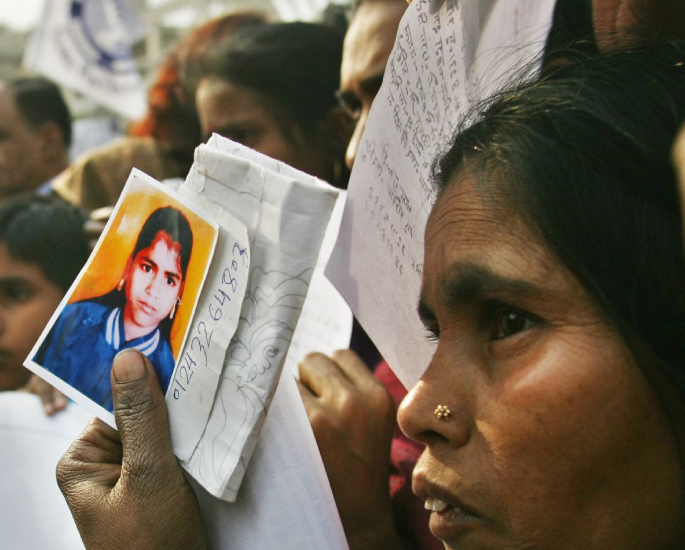Koli confessed to acts of cannibalism
In a harrowing case that sent shockwaves across India, Surinder Koli and his wealthy employer, Moninder Singh Pandher, were convicted in 2009.
Their arrest in 2006, prompted by the discovery of dismembered body parts near their residence near Delhi, rocked the collective consciousness of the country.
However, on October 16, 2023, the Allahabad High Court delivered a surprising verdict.
Koli, previously sentenced to death in 12 cases, was acquitted, and Pandher, who had faced guilt in two cases, was ordered to be released.
Their lawyer cited the “lack of evidence” as the pivotal factor behind this unexpected turn of events.
As of now, the court report has yet to be disclosed to the public.
The gruesome saga began in 2006.
Grim findings of body parts and children’s clothing came to light within a sewer located in front of Moninder Singh Pandher’s residence in Noida, a well-to-do suburb of the capital.
The horrors unveiled at least 19 young women and children had been subjected to rape, murder, and dismemberment.
At the time, law enforcement officials alleged that these unspeakable acts had unfolded within Pandher’s very home, where Koli was employed as a servant.
The police narrative contended that Koli had enticed the children with sweets and chocolates.
But, they instead met their tragic end which resulted in their remains being tragically discovered concealed in bags.

Additionally, during the investigation, Koli confessed to acts of cannibalism and necrophilia.
Only later, he would retract his confessions in court, revealing that they had been coerced from him through police violence.
India’s preeminent investigative agency, the Central Bureau of Investigation (CBI), had registered a total of 19 cases against the two men.
Koli was charged with a litany of offences, including murder, abduction, rape, and destruction of evidence, while Pandher was implicated in immoral trafficking.
The magnitude of these gruesome crimes ignited a nationwide wave of outrage.
Many criticised the police for their perceived negligence.
The media swiftly coined the term “house of horrors” to emphasise the shocking nature of this event.
Local residents and activists contended that law enforcement had failed to take swift action.
They attributed this delay to the social and economic status of the victims, many of whom hailed from poorer families near a slum known as Nithari.
Consequently, the case also became known as the “Nithari killings”.






























































